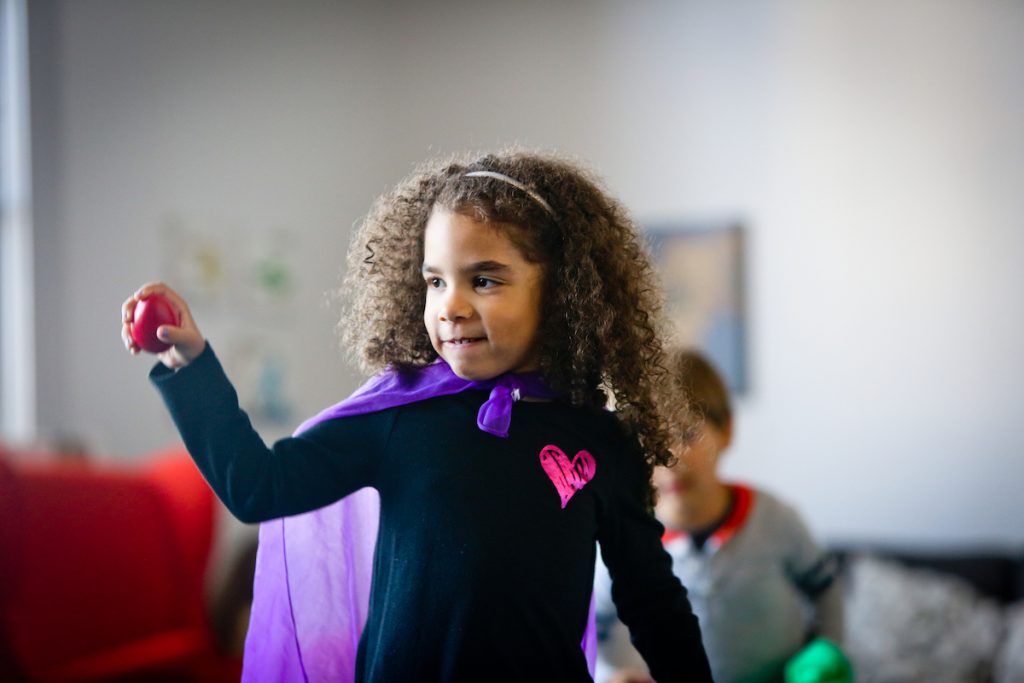
6 Ways to Prevent Summer Slide
Summer typically signals a well-deserved break for children and grownups—longer evenings outside, vacation, festivals, summer camps, and more. However, the looming threat of “summer slide,” which extends from babies to early elementary students, rears its ugly head each year. So, how can families ditch the negative pressure of learning loss with joyful tools that foster learning gains?
Here are six no-cost ways to combat summer slide…
6 Ways to Prevent Summer Slide
1. Read aloud.
This is where language development starts. While you can read to children from birth, they really start getting interested in objects (like books!) at 3 or 4 months of age. For all ages, reading doesn’t just boost vocabulary and comprehension development, it’s also an easy way to incorporate bonding. In fact, according to Scholastic’s latest Kids and Family Reading Report, “more than 80% of both kids and parents love or like read-aloud time because they consider it a special time together.”
2. Sing aloud.
Just like reading aloud, music jumpstarts early language learning, and it also amplifies math skills! Grasping concepts like steady beat, rhythm, and sequencing can really set the tone for reaching important cognitive milestones.
One of our favorite songs, “The Ants Go Marching,” is packed with all three!
For babies, start by tapping slowly to the beat and guiding their little hands to do the same as you sing along. For older kiddos, focus on how the ants keep marching in larger groups…1 by 1, 2 by 2, 3 by 3, and so on.
3. Schedule learning time.
Generally, children are able to focus around 2-5 minutes per year of age (so, a 3-year-old might be able to focus for 15 minutes on a task). Of course, this is also dependent on lots of factors like time of day, whether the activity is before or after mealtime, whether a parent or caregiver is also participating, etc.
Here’s what we know: children THRIVE on schedules. Schedule out small chunks of time for them to complete tasks, preferably when there is an adult participating or (if they’re older) in the same room to give feedback and encouragement. And yes, a 5-minute reading block counts!
4. Reduce screen time.
For most families, daily screen time is inevitable. Maybe it’s a few minutes of a favorite cartoon while mom or dad is gulping down some hot coffee. Maybe it’s 10 minutes with an online learning tool recommended by your child’s preschool or practicing some educational musical play on the free Kindermusik App.
A little quality programming, depending on age and supervision, is OK. But keep this in mind…too much sedentary screen time is linked to missing milestones. The World Health Organization recommends 1 hour of screen time or less per day for children 2-4, and little to none for children under 2.

5. Incorporate themes.
Theme-based learning is a widely used approach in many early education centers and schools, and a huge part of what we offer through Kindermusik. Why? Aside from building natural interest in a particular subject, children have an opportunity to work on a variety of skills (like literacy, art, and math) and connect them through one common thread.
That connection alone is a cognitive win, and there are lots of free tools out there to help make it happen! Our free weekly activity kits for families are not only an easy way to boost learning at home (or as a supplemental resource for camps or classrooms), they’re a great bonding tool and just as much fun for adults.
6. Don’t forget to play!
Research shows that play—especially guided play—enhances development across all domains. Here are just a few examples.
- Reaching for a toy during tummy time promotes spatial awareness for babies.
- Searching for mailbox numbers on a walk helps older toddlers with recognition and memorization.
- A game of Red Light/Green Light helps preschoolers master self-regulation.
And then there’s just the need for laughter! We all need to recharge…especially little ones. So, use playtime to pump up learning and fun.
Whether your children are headed back to a classroom this fall or continuing the majority of their growth at home, use these simple ideas to help them meet developmental goals and prepare them for whatever lies ahead. The best part about achieving learning gains as a family is the memories you’ll make together!
Need more ideas? How about joining us for a class! Find an in-person or virtual class near you, or if you’re an early childhood educator, check out our learning solutions for all environments.

